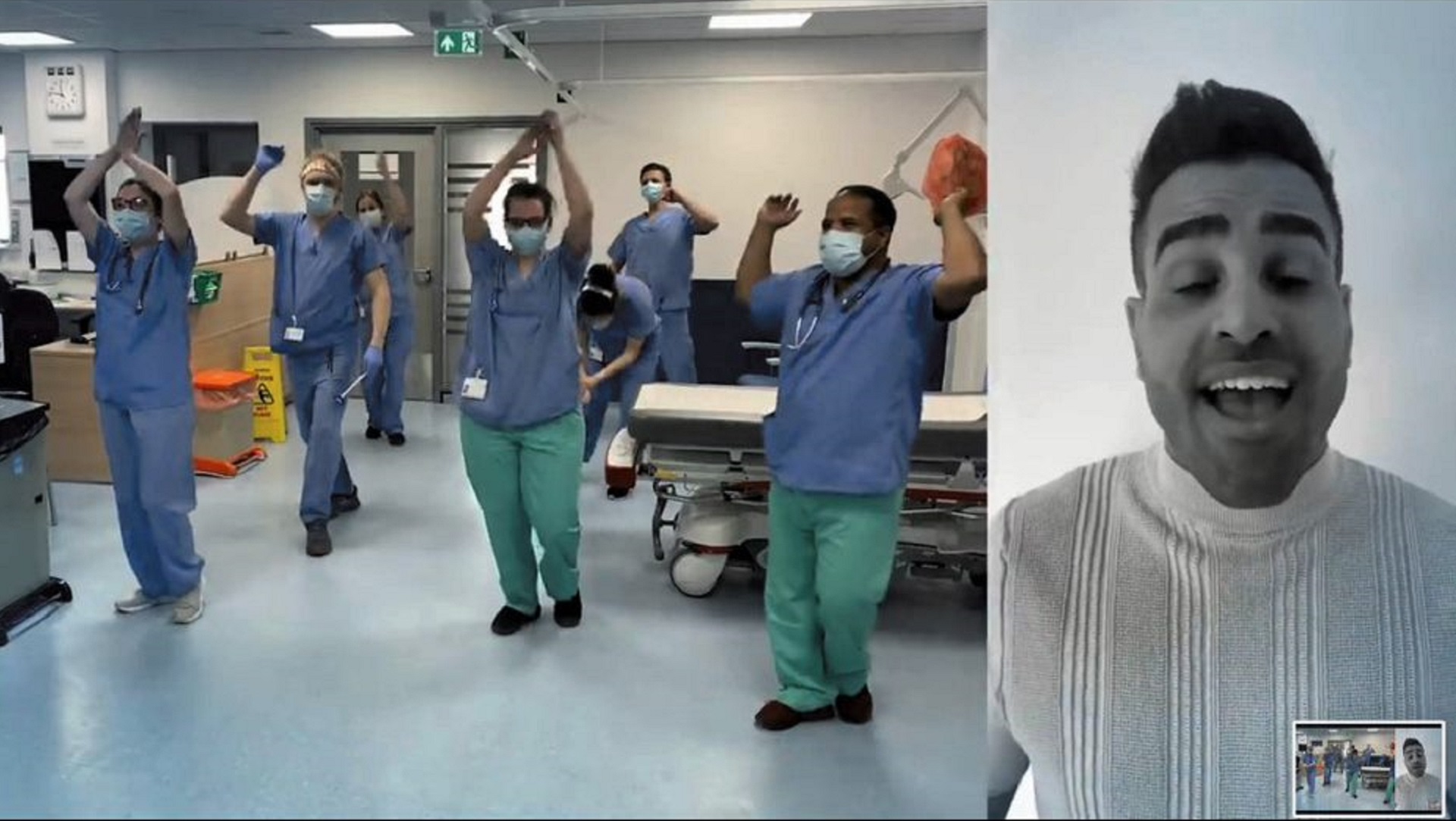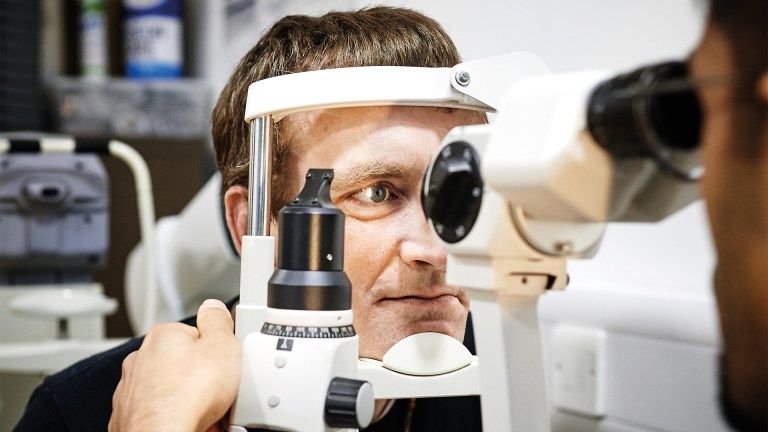Part of the proceeds of Lean On Me is going towards a mental health charity for NHS workers. Is there enough support for them?
We’ve been looking at the wellbeing of our workforce more and more because the pressures on the NHS were growing before coronavirus came along. I don’t want to use the word unprecedented because everybody is saying that, but it’s an unusual time. We’ve never been in this kind of situation. Every stress is heightened. People are really struggling when it comes to physical and mental health. I work in A&E, which is one of the places that you really see that because it’s an intense, hectic environment. As time has gone on, extra measures have grown but coronavirus has put a magnifying glass on it all. We need to make sure that people have got somewhere to turn to when they need help.
What can we do to help?
What the general public have been doing for the NHS is incredible. Every Thursday the most profound thing happens at eight o’clock when everyone comes out to clap and cheer. It gets me emotional every time I talk about it, the simplest little gesture means the biggest thing to all of us who are on the front line. That gesture means the world, not just to the NHS but every key worker – carers, firefighters, ambulance and police staff – everyone putting themselves on the front line.
What are your top tips for us to help reduce the severity of the crisis?
So first and foremost, please stay at home, observe social distancing, wash your hands, let’s get on top of this pandemic. Second, if you’re able to then volunteer. There are lots of ways you can help both inside and outside the NHS. Some people have been making things like PPE and masks and scrubs. A lot of people have been donating food and groceries and toiletries. That’s good but if you’re going to do that, please don’t forget foodbanks. We in the NHS are still really lucky that we have jobs and the means to provide, whereas many people in the community have lost their jobs because of lockdown.
In A&E we’re seeing lower numbers and the people we are seeing are very sick
How have you seen the situation change your shifts on A&E?
At the moment in adult A&E where the bulk and the brunt of coronavirus is being felt, most of what we see is coronavirus- related – lots of very, very sick people.That’s why we talk about flattening the curve. In children’s services, ironically, people are staying away. We’re seeing lower numbers and the people we are seeing are very sick. Across the board we’re seeing a lot less of what we would normally expect to see right now. People don’t want to put pressure on the system, which is fine and we’re really grateful for that, but when people are scared to come to hospital they get really, really sick and could come to harm if they don’t seek help when they should. We want to stop that happening. If you think you’ve got coronavirus, by all means stay at home and look after yourself. But if you’re poorly and you’re getting sicker and you’re worried, particularly if it’s a child, then please seek medical help. We’re still here. The NHS is still open for business.
After the worst is over, what lessons do we need to remember about this time?
Firstly, that we use the NHS appropriately for what we really need to use it for. We shouldn’t put undue pressure on it. Secondly, that we look after ourselves a lot more. People are now paying attention to getting exercise because they only get one opportunity to do it, so all of a sudden everybody is taking advantage of that and taking care of themselves. Everyone’s looking out for their mental health and that of other people around them as well. These things are important to takeforward. Finally, I hope we might look at how we treat and fund and resource the NHS, and how our government looks out for it and how they manage it and ask whether we can do that better. We need to learn from this.
Read more from Dr Ranj and Beverley Knight about the NHS Relief Project’s song Lean On Me in The Big Issue out later this week. Find out how to support the project at nhsreliefproject.org






